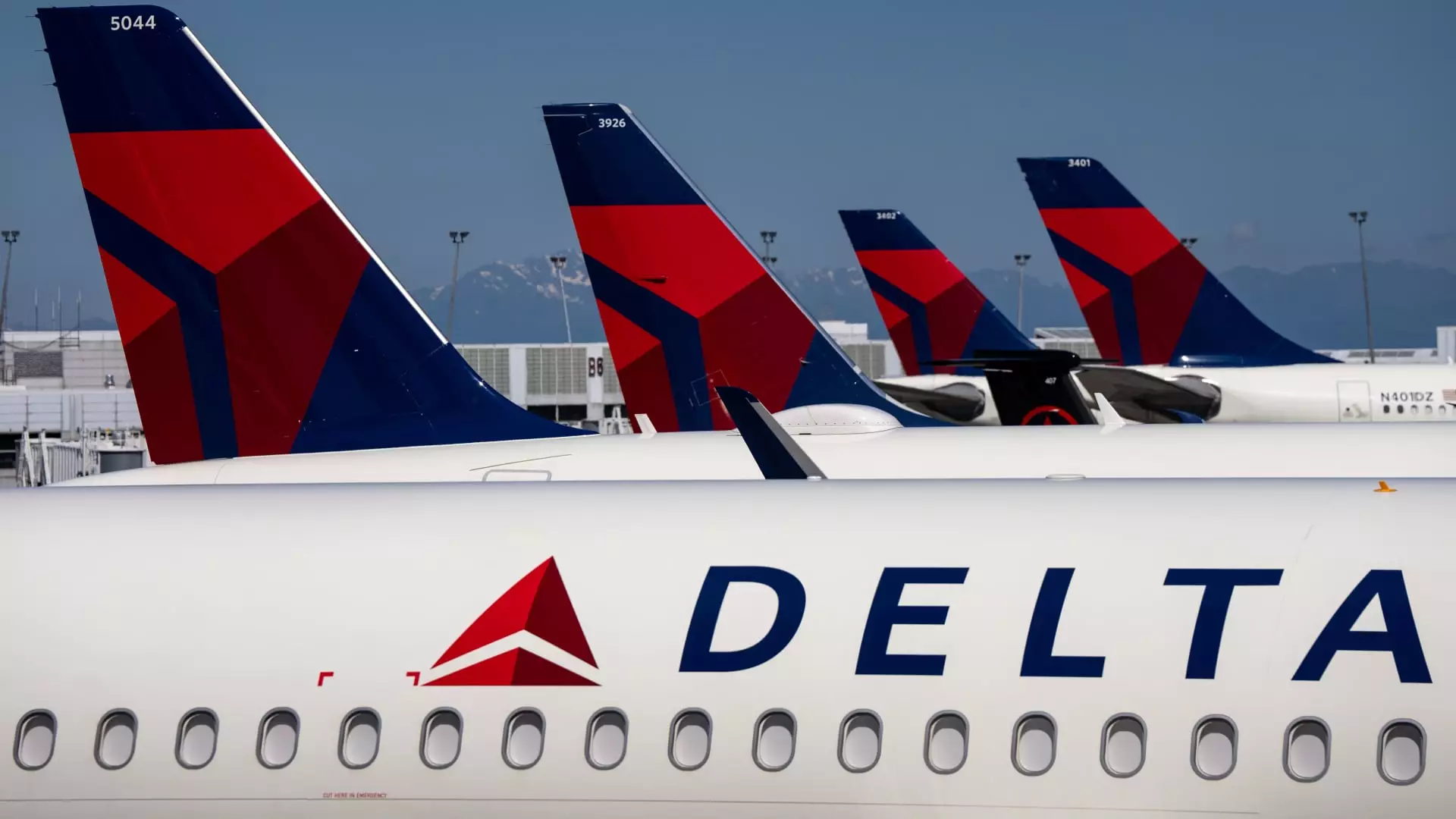In these turbulent times of shifting political currents, the aviation industry finds itself at a crossroads, with Delta Air Lines struggling to maintain its upward trajectory amid the fallout of President Donald Trump’s trade policies. CEO Ed Bastian has been candid in addressing the challenges, labeling the current approach as “the wrong direction.” One can argue that while the airline was previously basking in the glow of booming travel demand, these optimistic forecasts have been choked by the harsh realities of political and economic instability. The profound effects of shifting trade policies are undeniable in shaping consumer behavior, and Delta’s hesitance to expand operations is evidence that airlines must navigate these waters meticulously.
The forecasts for the second quarter paint a troubling picture. Delta anticipates a revenue decline of up to 2%, significantly less than the Wall Street expectations of moderate growth. This is not merely a statistic; it reflects a deeper sentiment of concern among consumers and businesses alike. A drop in confidence in spending could have a ripple effect across industries, and the aviation sector is no exception. Bastian’s remarks about the deterioration of broad consumer confidence should send a warning signal to stakeholders. This decline could alter the playing field, creating long-lasting ramifications for flight demand.
Navigating the Uncertainty: A Risky Game for Airlines
Delta Air Lines now finds itself clinging to an older playbook, grappling with an unsettling shift in both corporate and leisure travel demands. Just months ago, Delta was poised to expand its flying capacity, but such ambition has been curtailed as Bastian announced that there will be no growth in capacity for the second half of the year. This is a stark contrast to earlier optimism, a sign that the airline industry must recalibrate its strategies to tackle an evolving economic landscape.
It is evident that executives are increasingly wary of consumers’ spending behaviors. The recent cuts in travel demand, especially in the corporate sector, signal that companies are reevaluating the necessity of business trips. This reconsideration coincides with government pressure to cut the workforce, leaving many to wonder how this will shape corporate culture. The fallout from these decisions reaches far beyond simple budget cuts; it can reshape the entire dynamics of how business is conducted in an ever-globalizing world.
Bastian pointedly mentioned how although international and premium travel remains resilient, the lingering question looms—what about the mainstream traveler? With airlines now struggling against a backdrop of broader economic uncertainty, the need to maintain profitability pushes them to focus on controlling costs, trimming down on flights, and consolidating gains rather than expanding. This can easily be read as a capitulation of sorts, a temporary retreat in the face of overwhelming uncertainty.
Delta Air Lines: An Industry Bellwether
Delta’s standing as the most profitable U.S. airline serves as a bellwether for other carriers. With competitors like United, American, and Southwest slated to report their earnings soon, the industry awaits with bated breath to see if they will echo Delta’s cautious outlook. A collective gloomy forecast could indicate a broader market malaise, while an unexpected rebound might illuminate opportunities that Delta overlooked.
Delta’s recent adjustments in earnings forecasts—significantly below analyst expectations—echo the fears harbored throughout the industry. When consumer confidence ebbs, the ripple effects can devastate an airline’s financial position. This presents an urgent reminder for not only Delta but also airlines around the world: the landscape can shift dramatically.
Moreover, the dialogue surrounding Delta’s financial health touches on a larger narrative—how resilient can major airlines be in turbulent economic times? The need for transparency from leadership is paramount, yet one can’t help but wonder if the reliance on a conservative outlook may stifle innovation and calculated risks that could set the industry ablaze with growth once again.
The Road Ahead: What Lies Beyond the Horizon
While the outlook remains cautious, it is critical to recognize that Delta’s issues are not isolated. They serve as a mirror reflecting larger economic dilemmas that corporations are encountering. Although the airline maintains a facade of profitability for this year, the predictions draw into question how long such resilience can last if the current trends persist.
Investors and stakeholders would do well to remain vigilant, as this year unfolds with Delta’s fortunes potentially reshaping their expectations. Success could hinge not just on external economic conditions but also on the strategic agility demonstrated by leadership. In an ever-evolving landscape, what might have been viewed as insurmountable obstacles could pivot into unprecedented opportunities—should airlines prove adaptable and forward-thinking enough to seize them.

